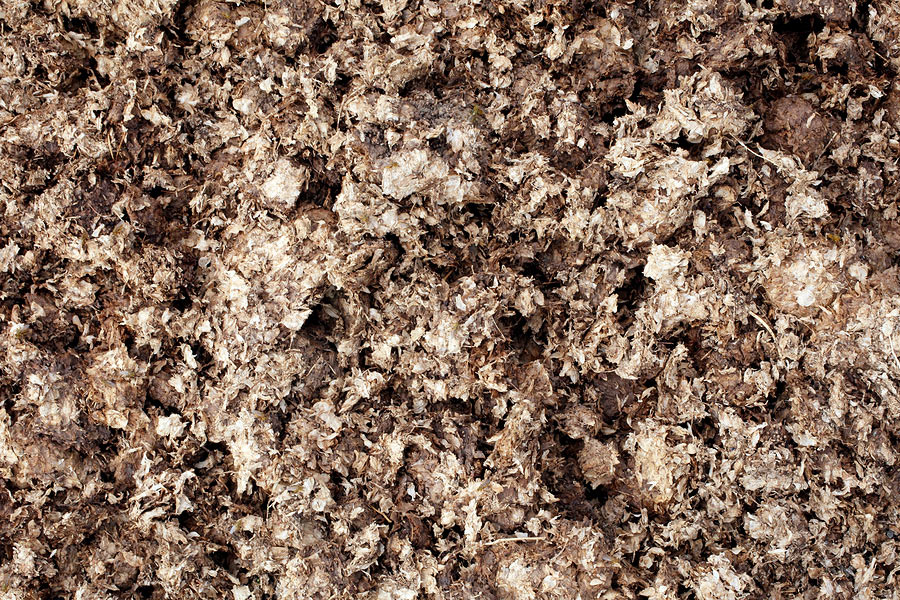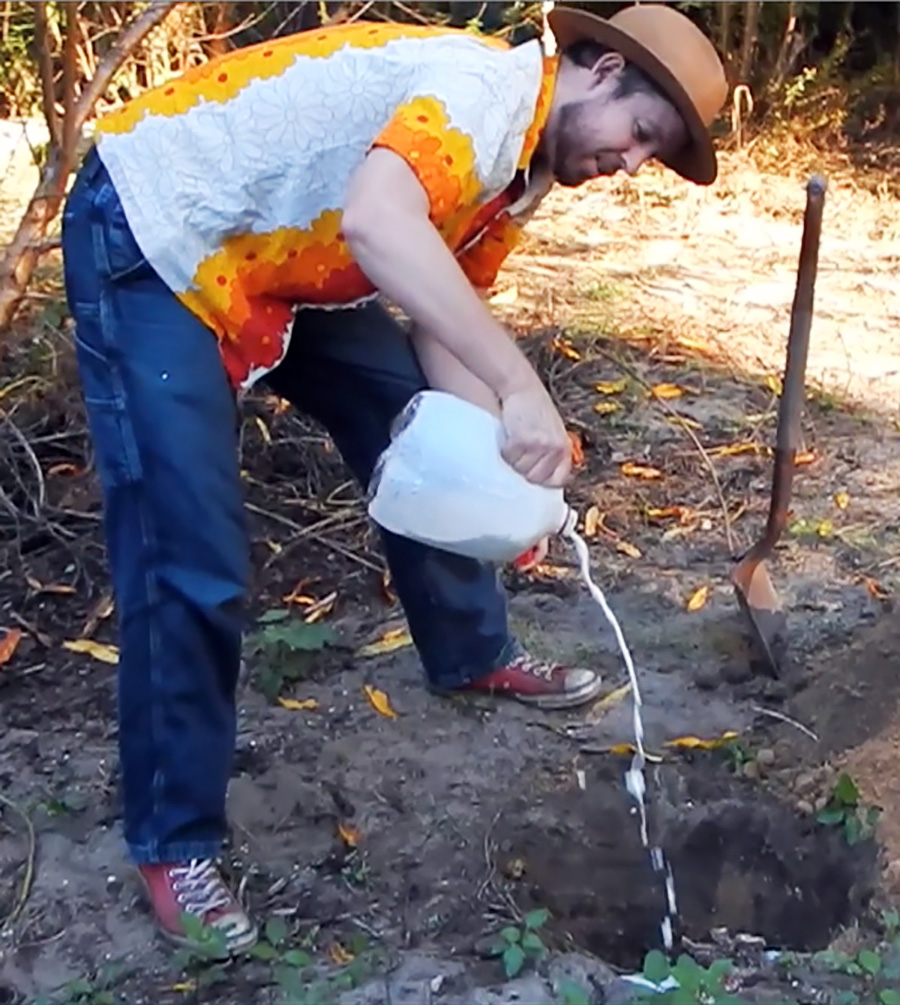Learning From Nature
I admit it: I get a kick out of shaking things up. For years I listened to the rules on composting … then I shrugged, threw away the rule book, and decided to watch what happened in nature and copy the design I found there.
Basically everything organic can be returned to the soil. Paper, sewage, logs, animal carcasses, chicken soup … you name it.
And isn’t it much better to return these items to the soil than it is to dump them in a landfill? It’s a no-brainer!
In 2015, my years of experimentation and the knowledge I have gained were distilled down into the book Compost Everything: The Good Guide to Extreme Composting. The response was excellent, and the sales still continue to amaze me. It is transforming the way gardeners think about composting. Just throwing things away isn’t good enough anymore.
Unlearning the ‘Rules’
When I wrote the book I had no idea so many people would be willing to come along for the ride. It’s thrilling.
For years, we’ve been told not to compost meat … and then we’re told to use blood meal as a great organic source of nitrogen for our gardens.
We’re told to turn our compost piles regularly … but when we walk through the woods the leaves have created rich humus everywhere, no turning required.
We’re warned that human waste is incredibly dangerous … but every other creature on the planet fails to use a flush toilet with no ill effect.
People love recycling because it’s easy and feels like a good deed … yet those same people will often throw away a banana peel or a ham bone because composting is “too hard.”
It’s not hard when you do it like nature does. Composting is recycling “trash” into soil—and we should all be doing it.
Extreme Composting
Some of the ideas in Compost Everything are certainly extreme compared to the nice, safe restrictions foisted on us by well-meaning agricultural extensions and fuddy-duddy garden writers, yet nature itself is an EXTREME composter!
Why not see what she does and do the same?
(This article was originally published on March 9, 2016.)
David The Good is a Grow Network Change Maker, a gardening expert, and the author of five books you can find on Amazon: Compost Everything: The Good Guide to Extreme Composting, Grow or Die: The Good Guide to Survival Gardening, Totally Crazy Easy Florida Gardening, Create Your Own Florida Food Forest, and Push the Zone: The Good Guide to Growing Tropical Plants Beyond the Tropics. Find fresh gardening inspiration at his website TheSurvivalGardener.com and be sure to follow his popular YouTube channel.










COMMENTS(11)
Living in an appt. No extra money, $500 SS, must grow own food.
Hi Don – You’re in good company here – lots of us growing our own food, for lots of different reasons. Welcome!
Dear Don, Do you have friends with yards? Maybe some of them would love a garden but lack the time or knowledge and would be willing to divide the bounty in exchange for your help. If you have enough time, don’t limit yourself to just one such arrangement. Check with a Master Gardener group. They may be able to help you find a garden plot. My town lets any one pick up pecans in the parks. Some people have fruit trees that were planted by previous owners, but that they have no desire to pick or preserve the fruit and are glad for someone to pick it to prevent a mess in their yard.
Have you watched the documentary “Return to Eden?” He did basically the same thing you did. He looked at nature and followed suit. Nature doesn’t till the soil yet things grow..and abundantly. It doesn’t worry about soil pH or any of the other things we do. It would be worth the watch! I’m going to follow those principles ASAP. I’ll be using the composting though to help build the depleted soils. I’m glad to see I really don’t have to worry about what I put in there! Human urine helps rebuild as well. It’s full of vitamins and minerals our body doesn’t need which can be put back into the soil (watered down of course. Straight urine will burn plants.)
ALSO, mixing raw milk and cow manure and letting it ferment for around 18 months is EXCELLENT for soil and thus gardens. Milk itself is awesome. Look it up to find out ratios with water. It’s not that it will hurt anything, just that once you get ‘enough’ anything over is a waste. It’s something like 3 gallons of milk to 17 gallons of water will cover and acre. But check that out to be sure.
Here’s to good health and blessing from God to each and every one.
How long will the 2016 Summit be available? I can’t afford it right now, but maybe in a couple of months (July2016)! Looks great…
I have listened to david the good and have two small gardens. I compost, etc. but every time it about ready to be picked, my tomatoes get eaten by some critter. Not insects. Something bites half of them off. All that work n harvests, for me anyway…?
Jennifer, I’ve had what looks like large bites out of my tomatoes as well. This last summer I discovered mine were coming from hungry snails. Wow, those guys can eat a lot in one night! You may want to have a look in the early early morning to check for them-picking them up by the shells and sealing in a bag for the trash is what I did, and on a couple of occasions used some diatomaceous earth sprinkled on/around the plants. If I didn’t go in the early morning, they had already skipped outta there. It was surprising how well they were hidden, out in cool and shady spots just waiting for another cool night to come so they could come out to munch! I wonder how I could compost those snails…
Depending on where you live, you might actually have some critters helping themselves to your tomatoes 🙂 I once had a wonderful, beautiful tomato plant growing in a 5 gallon bucket and I was noticing similar damage to what you describe, and I was very puzzled. Then late one night I realized that someone had accidently let the cat out as she was meowing and scratching at my door. When I went to get the cat, I discovered what was eating my tomatoes…it was a possum and a raccoon, yes, both 🙁 I attached a wind chime to my tomato stake wires (rope) and tada…no more of those problems because their heads (or paws) disturbed the wires thus sounding the wind chime, which apparently they did not like.
Hey David! Still an excellent post! I guess composting never goes out of style…
I’m on a small farm and am developing an area of garden and orchard beside a stream, about the only area that isn’t steep. My biggest problem is finding enough organic material from which to make compost. I am keen to try growing a green-manure crop and see how that goes. I’ve been inspired by Gabe Brown who does this on thousands of acres of land.
https://www.google.com/search?q=Gabe+Brown
https://www.youtube.com/watch?v=9yPjoh9YJMk Gabe Brown: Keys To Building a Healthy Soil
http://brownsranch.us/
My first introduction to composting was my mom keeping a paper bag under the sink for kitchen scraps that she would then bury in the yard next to her favorite plants. She would also take all the dead moles the cats would leave and bury them near her rose bushes.
Slowly but surely, I’m becoming more confident in what I toss into the compost bin or the bottom of a new flower pot that needs soil. It can even be fun!